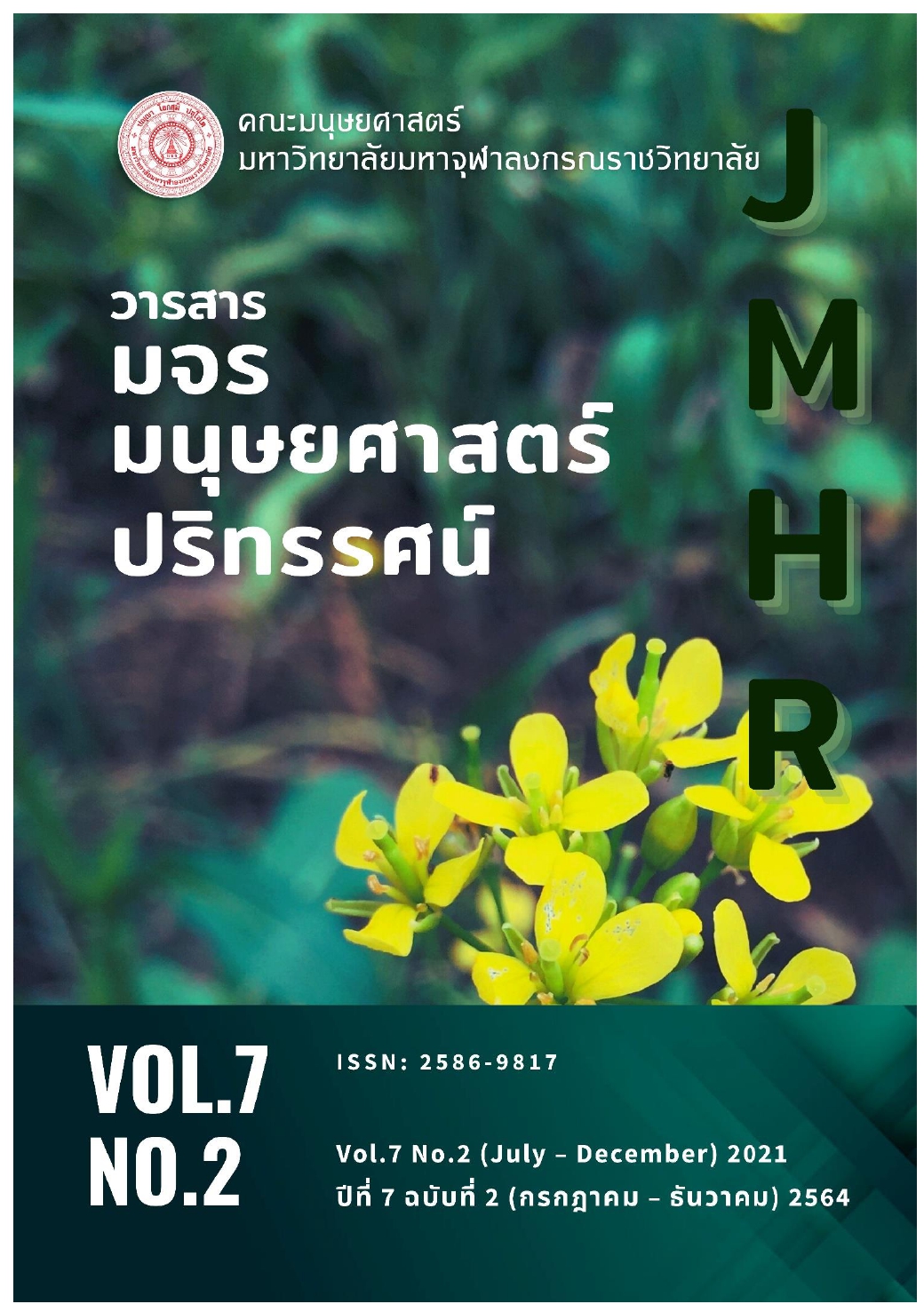การเปลี่ยนแปลงเพื่อความสำเร็จของการทำงานในยุคนิวนอร์มอล ตามหลักพุทธธรรม
คำสำคัญ:
การเปลี่ยนแปลง, การทำงาน, ความปกติในรูปแบบใหม่บทคัดย่อ
บทความนี้ มีวัตถุประสงค์เพื่อเสนอแนวคิดการเปลี่ยนแปลงการทำงานในยุค
นิวนอร์มอลของผู้บริหารและผู้ปฏิบัติงานในองค์กรเพื่อความสำเร็จของการทำงาน ต้องมีองค์ประกอบ 4 ประการ ได้แก่ การมีอิทธิพลเชิงอุดมการณ์ การสร้างแรงบันดาลใจ การกระตุ้นการใช้ปัญญา และการคำนึงถึงความเป็นปัจเจกบุคคล โดยการบูรณาการหลักพุทธธรรมสำหรับผู้บริหารและผู้ปฏิบัติงานในองค์กรควรนำมาเป็นแนวทางในปฏิบัติเพื่อความสำเร็จของการทำงานคือ อิทธิบาท 4 ได้แก่ 1) ฉันทะ หมายถึง ความพอใจ 2) วิริยะ หมายถึง ความเพียร 3) จิตตะ หมายถึง ความคิดมุ่งไป 4) วิมังสา หมายถึง ความไตร่ตรอง ซึ่งเป็นฐานหรือหนทางสู่ความสำเร็จ หรือคุณธรรมที่นำไปสู่ความสำเร็จแห่งผลที่มุ่งหมายในยุคนิวนอร์มอล ผู้บริหารและผู้ปฏิบัติต้องนำหลัก อิทธิบาท 4 มาใช้เป็นแนวทางการเปลี่ยนแปลงการทำงานในยุคนิวนอร์มอล (New normal) โดยสรุปความสำคัญ ได้ดังนี้ 1) ความพอใจหรือความเต็มใจที่จะทำงาน 2) ความขยันหมั่นเพียรที่จะทำงาน 3) ความเอาใจใส่มุ่งมั่นที่จะทำงาน และ 4) การตรวจสอบ ติดตาม แก้ไข ปรับปรุง และพัฒนางานที่ทำ ตามรูปแบบวงจรการควบคุมคุณภาพ (PDCA Deming Cycle) ประกอบด้วย 1) P : Plan คือ ฉันทะ : มีใจรักที่จะทำ 2) D : Do คือ วิริยะ : ทำด้วยความเพียร 3) C : Check คือ จิตตะ : เอาใจใส่ไม่ทอดทิ้ง และ 4) A : Action คือ วิมังสา : แก้ไขปรับปรุง ทั้งนี้เพื่อนำพาองค์กรไปสู่ความสำเร็จและอย่างยั่งยืนต่อไป
เอกสารอ้างอิง
เกียรติศักดิ์ สุขเหลือง. (2563). อิทธิบาท 4 เป็นคุณธรรมที่นำไปสู่ความสำเร็จ. เอกสารประกอบการสอนรายวิชารัฐประศาสนศาสตร์เชิงพุทธบูรณาการ. กรุงเทพฯ: มหาจุฬาลงกรณราชวิทยาลัย.
พจน์ พจนพาณิชย์กุล. (2559). ลูกน้องแบบไหนที่เจ้านายต้องการ. สืบค้น 1 มิถุนายน 2564,จาก https://sites.google.com/site/potarticle/Goodemployee
พรทิพย์ อัยยิมาพันธ์. (2563). บทบาทผู้นำยุคโควิด ต้องสร้างทุกคนให้เป็นผู้บริหาร. สืบค้น 1 มิถุนายน 2564. จาก https://www.prachachat.net/csr-hr/news-523827
พัชราวลัย สังข์ศรี. (2561). พุทธวิธีกับการบริหารการศึกษา. วารสาร Veridian E-Journal, Silpakorn University ฉบับภาษาไทย, สาขามนุษยศาสตร์ สังคมศาสตร์และศิลปะ, 11(1), 1260-1270.
พระธรรมปิฏก (ป.อ. ปยุตฺโต). (2559). พจนานุกรมพุทธศาสตร์ ฉบับประมวลธรรม (พิมพ์ครั้งที่ 39). กรุงเทพมหานคร : มูลนิธิการศึกษาเพื่อสันติภาพ พระธรรมปฎก (ป. อ. ปยุตฺโต).
วาสนา รังสร้อย. (2564). ผู้นำในยุคศตวรรษที่ 21 ต้องเปลี่ยนแปลงตนเองก่อน. สืบค้น 1 มิถุนายน 2564, จาก https://www.gotoknow.org/posts/521172
สำนักงานสหประชาชาติประจำประเทศไทย. (2563). การประเมินผลกระทบรวมด้านเศรษฐกิจ และสังคมจากการแพร่ระบาดของ โควิด-19 ในประเทศไทย. กรุงเทพฯ: สำนักงานสหประชาชาติประจำประเทศไทย.
ศศิมา สุขสว่าง. (2564). The นิวนอร์มอล (New normal กับการปรับตัวสำหรับการเปลี่ยนแปลงในยุค Digital Transformation. สืบค้น 1 มิถุนายน 2564. จาก https://www.sasimasuk.com/17203943/the-new-normal.
Bass, Bernard M, and Bruce J Avolio. (1994). Improving Organizational Effectiveness through Transformational Leadership. Thousand Oaks: Sage Publications.
Flippo, E.B., (1968). Management : A Behavioral Approach. Boston : Allyn & Bacon, Inc






